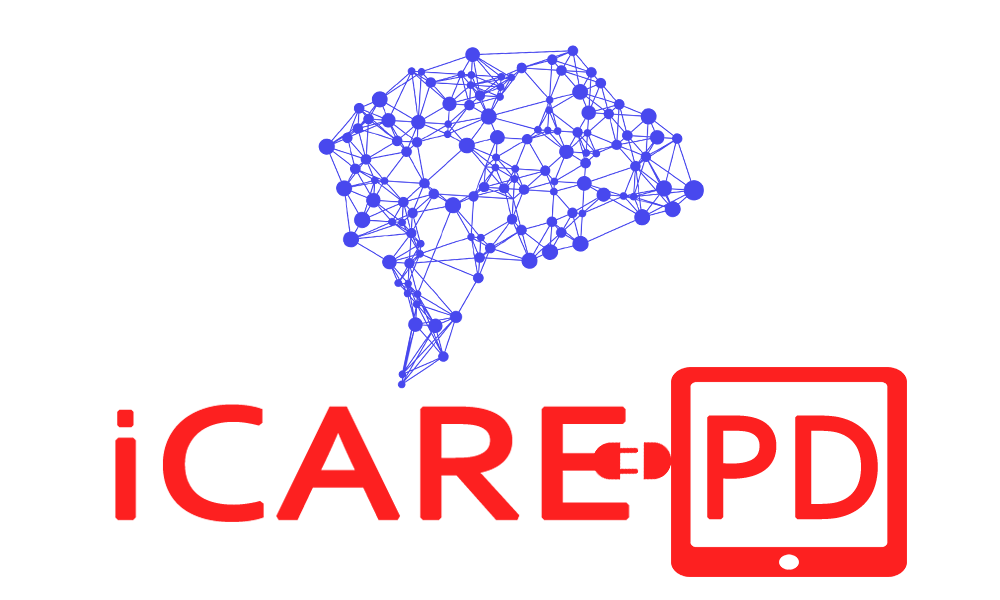Partners of iCARE-PD have started to develop various technologies using a novel, pragmatic, patient-centred approach from beginning to end of the development/evaluation process. A web-based platform called eCARE-PD has been co-designed to enable care integration and patient empowerment by providing tailored educational resources. Additional technologies such as wearable sensors, smartphone based-apps to monitor motor symptoms are in development.
Living with PD largely requires patients to manage their disease by themselves through self-care, and some technologies could play an important role in this process. There is evidence indicating that eHealth technologies can be effective or at least promising for supporting self-care in PD.
Numerous eHealth technologies have been specifically designed for PD such as:
- technologies providing information on the disease and targeting providers, patients, families and caregivers;
- technologies including tests for assessing various physical or cognitive symptoms of PD such as gait, tremor, speech; and
- technologies providing guideline for treatment including medication management, cognitive or speech therapy.
People with PD, their families, and health care providers are positive about self-care technologies, but their integration into daily practices remains one of the main challenges that can increase attrition rates and the level of abandonment. Many technologies fail to support self-care or improve personalized care because the design process often does not account for the complex relationships between technology and individuals in their social, cultural, and economic contexts.
To address these challenges, the iCARE-PD consortium uses a co-design approach largely informed by the field of Participatory Design, where the patients’ perspective is seen as a central component of the design process.
